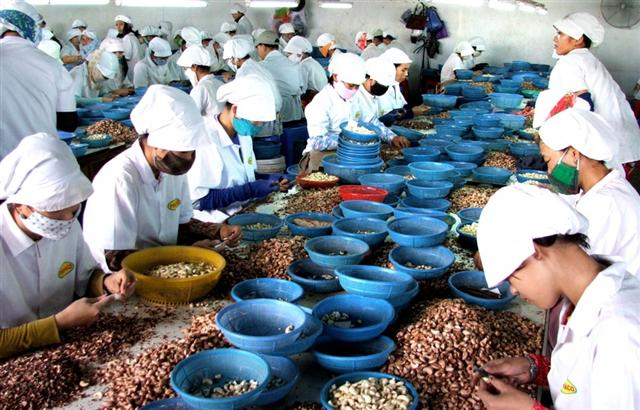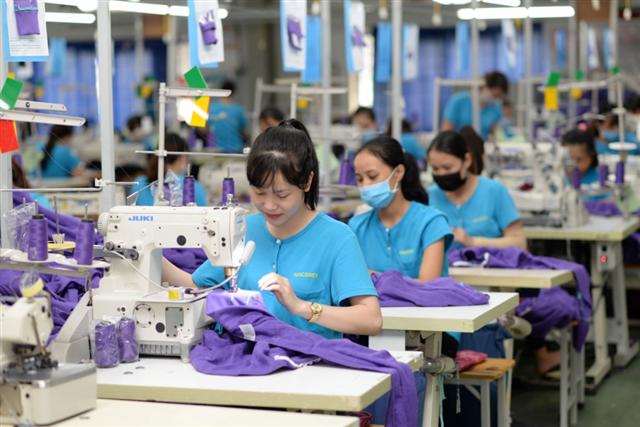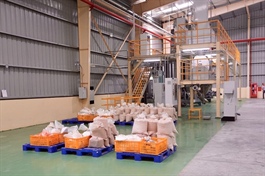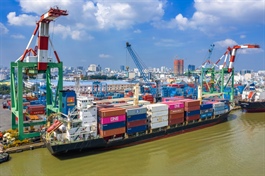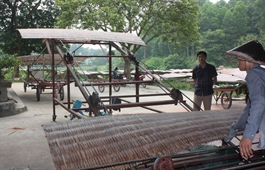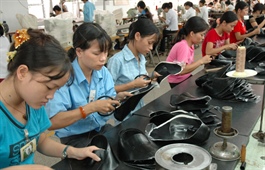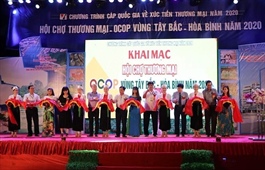Vietnam prepares to confront EVFTA-related trade remedies
Vietnam prepares to confront EVFTA-related trade remedies
With Vietnam’s enhanced participation in free trade agreements (FTAs), trade remedies like anti-dumping, countervailing, and safeguarding regimes become more meaningful for companies as well as the economy. These legal measures are expected to effectively support the local manufacturing sector as the competition with imports grows fiercer.
|
With its 13 FTAs, the latest being the EU-Vietnam Free Trade Agreement (EVFTA) that entered into force on August 1, Vietnam has opened its markets to goods from 51 partner countries. While this makes the Vietnamese market more vibrant and competitive, it also introduces risks of foreign goods being disguised as Vietnamese goods to benefit from tariff preferences, according to Nguyen Thi Thu Trang, Director of the Vietnam Chamber of Commerce and Industry’s (VCCI) WTO and International Trade Center.
Trang said integration provides many opportunities but challenges as well, for example import dumping harmful to both consumers and the economy. The review shows that the sources of goods entering Vietnam are also the most sued countries in the world. For example, China, the largest source of imports into Vietnam, was sued in over 1,500 cases from 1995 to 2019.
Trang also warned that domestic enterprises still do not pay due heed to trade remedies. While foreign-invested enterprises in Vietnam review regulations in order to shape operational strategies before signing orders and exporting goods, many Vietnamese enterprises do not even know when a country applies trade remedy measures against Vietnamese exports.
High levels of tariff reduction such as those associated with EVFTA will increase competitive pressure on Vietnamese enterprises or even EU enterprises in some areas, and likely increase the application of trade remedies. Le Trieu Dung, Director of the Ministry of Industry and Trade’s Trade Remedies Authority, said the use of trade remedies is widespread and even almost mandatory in the current business environment.
|
Capacity building
The trade remedy regulations stem from World Trade Organization policies, and are adjusted in line with Vietnamese trade remedy principles. They aim to legally protect the local economy and trade agreement signatories. The principles assure equality and transparency to create a stable and more favorable business climate for exporters.
A representative of the Ministry of Industry and Trade said the ministry was collecting opinions on a draft decision on trade remedy capacity building in the context of integration. In particular, the ministry would focus on completing legal documents and policies on trade remedies, improving the capacity of management agencies, building a coordination mechanism among relevant agencies, promoting training and international cooperation. This is in keeping with a 2019 decision by the Prime Minister on strengthening state management to prevent trade remedy evasion and origin fraud, known as Project 824.
The Ministry of Industry and Trade is also consulting on a draft circular guiding EVFTA-related trade remedies. The draft aims to create a legal basis for the investigation of trade remedy measures under the agreement, to internalize EVFTA regulations and disseminate them to enterprises.
Since Project 824 was launched, the ministry has been updating lists of goods vulnerable to origin fraud, illegal transmission and trade remedy evasion, which are available on its website.
| The Ministry of Industry and Trade is working with authorities of other countries and territories, especially the US and the EU, on a mechanism for coordination, information and mutual recognition in the field of trade remedies. |


